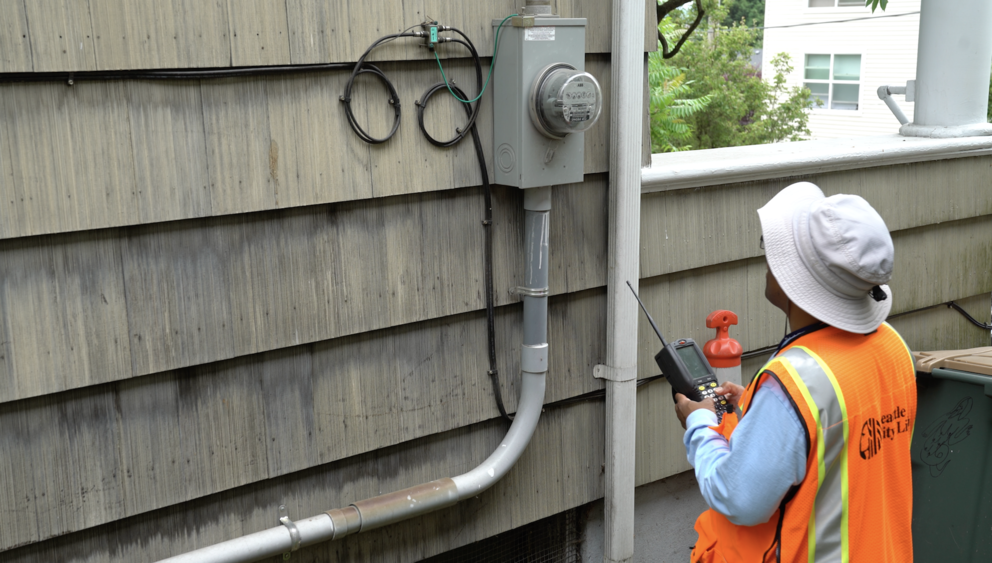If you live in the Seattle City Light service area, you may have received notification that City Light is converting all of the electrical meters at homes and businesses to a new automated metering system. While the new system is said to provide more accurate billing, faster outage recovery and a foundation for new and expanded services, there are a host of other issues that come with its implementation, including the displacement of nearly 30 meter reader employees — some who have devoted their entire professional careers to the City.
While our work goes mostly unnoticed by customers, the job of the meter readers is nonetheless important. The information we collect from electric meters throughout the city ensures that electricity bills are true and accurate. But since the automation process began, some at City Light have attempted to blame both internal and external problems on its own hard-working employees.
In a Crosscut story published Dec. 1 titled, “Make a move? City Light lagging on thousands of customer records,” City Light spokesperson Scott Thomsen asserted that the backlog is attributed to a lack of motivation by meter readers who stand to lose their jobs within the next year.
This is simply not the case. We remain highly motivated, although morale took a big hit when Mr. Thomsen’s comments were made public.
Amy Bowles, Union Representative for Professional and Technical Employees (PTE) Local 17, has pointed out that many in City Light management have been impressed with the readers’ commitment despite their uncertain future.
“Very few of the readers have jumped ship for other opportunities because they love their jobs and are committed to the work they perform for the residents of Seattle,” Bowles has said.
There are a host of other issues at City Light contributing to the billing backlog: chronic understaffing of the meter reading unit; inefficient business processes; the increasing population and the sheer number of citizens moving in and out of residences in the city at any given time; and the implementation of new technologies — like the customer information system — and the hiccups that come with it.
When the city first discussed implementing a new metering system a couple of years ago, we meter readers were promised retraining so that we could be prepared to work other jobs in City Light or in other departments. There were resume and interview skills classes, but then the retraining fizzled out when the person in charge of the program left the City.
Installation of the new meters — which is being done by outside contractor Aclara — started this fall and is expected to wrap up in 2018. City Light thinks they will need about 5-10 full-time meter readers even after the new system is fully installed because some homeowners will opt out of the automated system. But that still leaves more than two dozen employees without work.
Meter readers understand the efficiencies of the new system, and are open to being trained to do other work. The fear is that the younger employees and those with fewer years under their belt will be forced to leave city employment.
"I've loved the freedom, flexibility and fresh air that's come with this work," said Lorella Bani, a 19-year meter reader. "But I understand that things change, and I'm open to learning new skills so that I can keep working for the City."
Some meter readers would like to see more opportunities to job shadow other City employees — from customer service and administrative jobs to warehouse, flagger, or forklift work. Others would like to be offered the chance to earn licenses that could be beneficial in other jobs, like a Commercial Driver’s License.
Aclara did recruit a few meter readers from City Light to do the installation work with the promise of higher pay. But those that remain with the City worry that once the project is completed, these former union members will be let go and they will not have the safety net of a union contract, which can bargain the impacts of changes to working conditions.
"We just want to be kept informed of the decisions that are being made, so that we can prepare ourselves for what's next," said meter reader Margaret McCullough, who’s been with the City for 40 years.
PTE Local 17 is working with the meter readers to ensure that we are treated with respect and in accordance with their contract during this time of transition.


